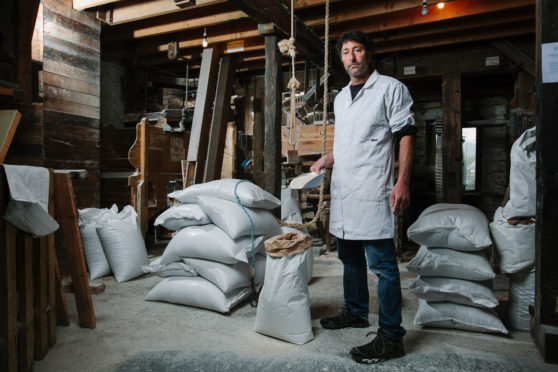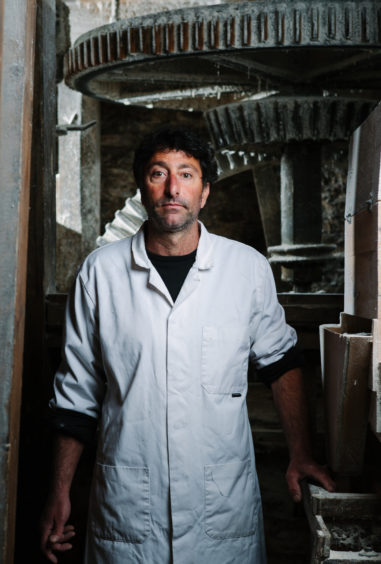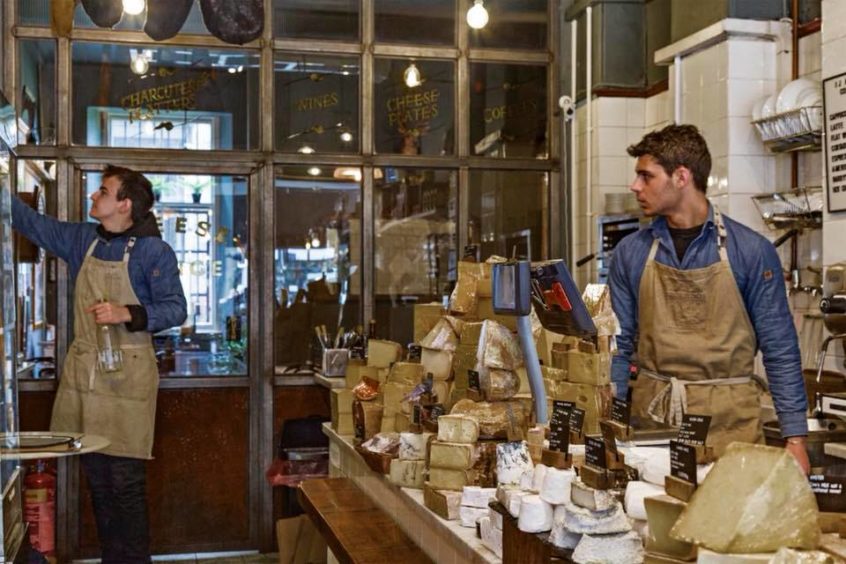
The pandemic was a threat to their business but the great challenge of Covid has turned into an opportunity for some of Scotland’s smallest food producers.
Some are experiencing an unexpected boom in retail trade, as food shortages, long queues and safety fears encourage more consumers away from supermarket chains and towards a more thoughtful way of shopping.
The global pandemic also exposed the fragility of our food supply chain, as panic buying in the early days of lockdown stripped supermarket shelves and home delivery slots became as scarce as toilet roll and hand sanitiser.
As a result, more Scots seem to be shopping locally – either online or in-person – for traditionally milled flour, freshly-baked sourdough loaves, locally-grown organic vegetables and quality cuts of meat. Buying from several small producers is far from a chore, with many now believing shopping local is unrivalled in terms of taste, quality and experience.
An extreme shortage of flour in March saw sales for Scotland’s independent flour mills explode overnight. Months later, many are still struggling to meet demand.
But the boom in online sales has balanced a plummeting wholesale income, as the restaurants, cafes and bakeries these mills once supplied were forced to close overnight. Rami Cohen, who runs the Blair Atholl Watermill near Pitlochry with his business partner, Kirsty Cohen, says an incredible 2,900% rise in online retail has saved the traditional mill’s future, while its popular adjoining tearoom remains shut.
“We haven’t seen this level of demand in the 20 years we’ve been running the mill,” said Rami.
“In March, we milled more flour than we did the whole of last year. As a small, traditional mill we relied on our bakery and tearoom for income. We were suddenly getting more online orders in one day than we usually would in a month. We’ve been constantly working to keep up.
“With our tearoom closed and the bakery only open on a Saturday, the mill has saved our business, which means we should have the funds to carry out vital repairs on the waterwheel. It’s funny that a small, working watermill in Blair Atholl is providing flour to people down in London and across Scotland.”
Shoppers are now rediscovering the joys of buying from artisan producers closer to home.
According to recent research by shopping comparison website finder.com, 41% of shoppers have been buying from their local greengrocers, butchers and corner shops more often during lockdown.
Common reasons are to dodge long queues, avoid crowds at supermarkets and, most importantly, to support local businesses during the current financial squeeze. And the research also found that 36% of shoppers pledge to continue buying from their neighbourhood shops after lockdown.
Rami has been overwhelmed by this surge in community spirit. He added: “People are certainly buying more from our bakery. They want to help a small business like ours survive in this climate.
“We usually give our regular customers a small discount but they have been refusing that and don’t want their change back. I’ve been paying that forward by shopping more in our two local shops and ordering from a fisherman in Arbroath, who delivers fresh fish from the East Coast to my doorstep within two days. People help you and so you help others. It’s really nice and so important right now.”
Rory Mellis of Edinburgh-based cheesemonger, IJ Mellis, says a rise in new retail orders is helping his family-run business break even after its wholesale business plummeted by 98% overnight with the closure of local restaurants and wine bars.
“We’ve definitely seen an increase in new customers and have had a queue outside the Stockbridge and Morningside shops every day,” said Rory, whose father Iain opened the first IJ Mellis cheese shop in Edinburgh in 1993.
“There was an initial boost for small, local shops. A big part of that was people not wanting to wait in long supermarket queues. We only have one person in at a time and have strict cleaning processes in place, so I think customers feel more comfortable shopping here than in a supermarket right now.
“The focus now is trying to keep these new customers we’ve gained over lockdown but I don’t think that should be a problem. I think many have been surprised by the range of stock we have, including things like bread and pasta that they couldn’t get in supermarkets.”
He added: “They’re realising it’s actually more convenient to shop local. I think this will lead to a general increase in trade for local shops across the board.”
Supermarkets once won out over their small artisan rivals in terms of convenience. Now, online ordering has levelled the playing field by allowing the public to buy direct from local farmers, butchers, fishmongers and artisan food producers. But Rory adds that while e-commerce has boosted trade, it can’t replace the unique shopping experience artisan producers offer.
“A lot of people just come in for a taste of our cheese and a chat and so they tend to build a relationship with our staff,” he said. “A big part of buying fresh and local is the whole experience of it and shopping online can’t replace that.”

Enjoy the convenience of having The Sunday Post delivered as a digital ePaper straight to your smartphone, tablet or computer.
Subscribe for only £5.49 a month and enjoy all the benefits of the printed paper as a digital replica.
Subscribe © Andrew Cawley
© Andrew Cawley